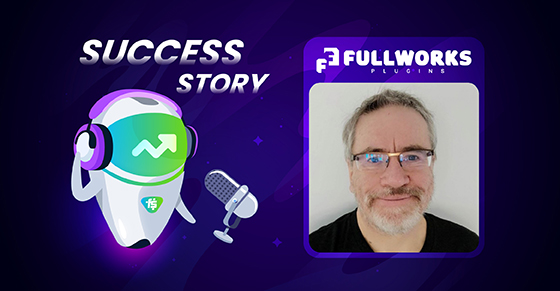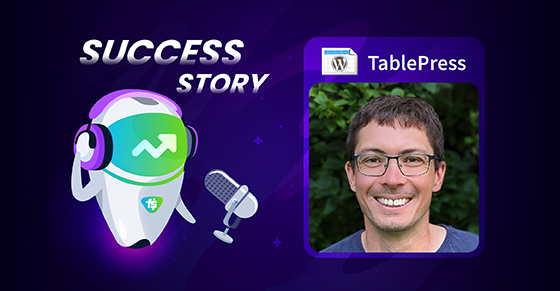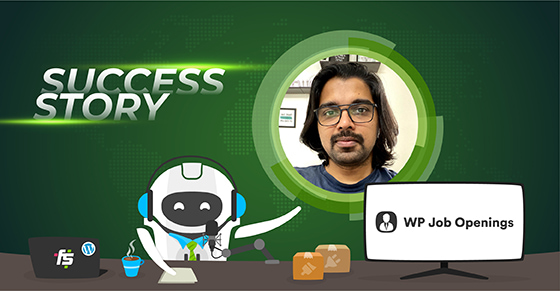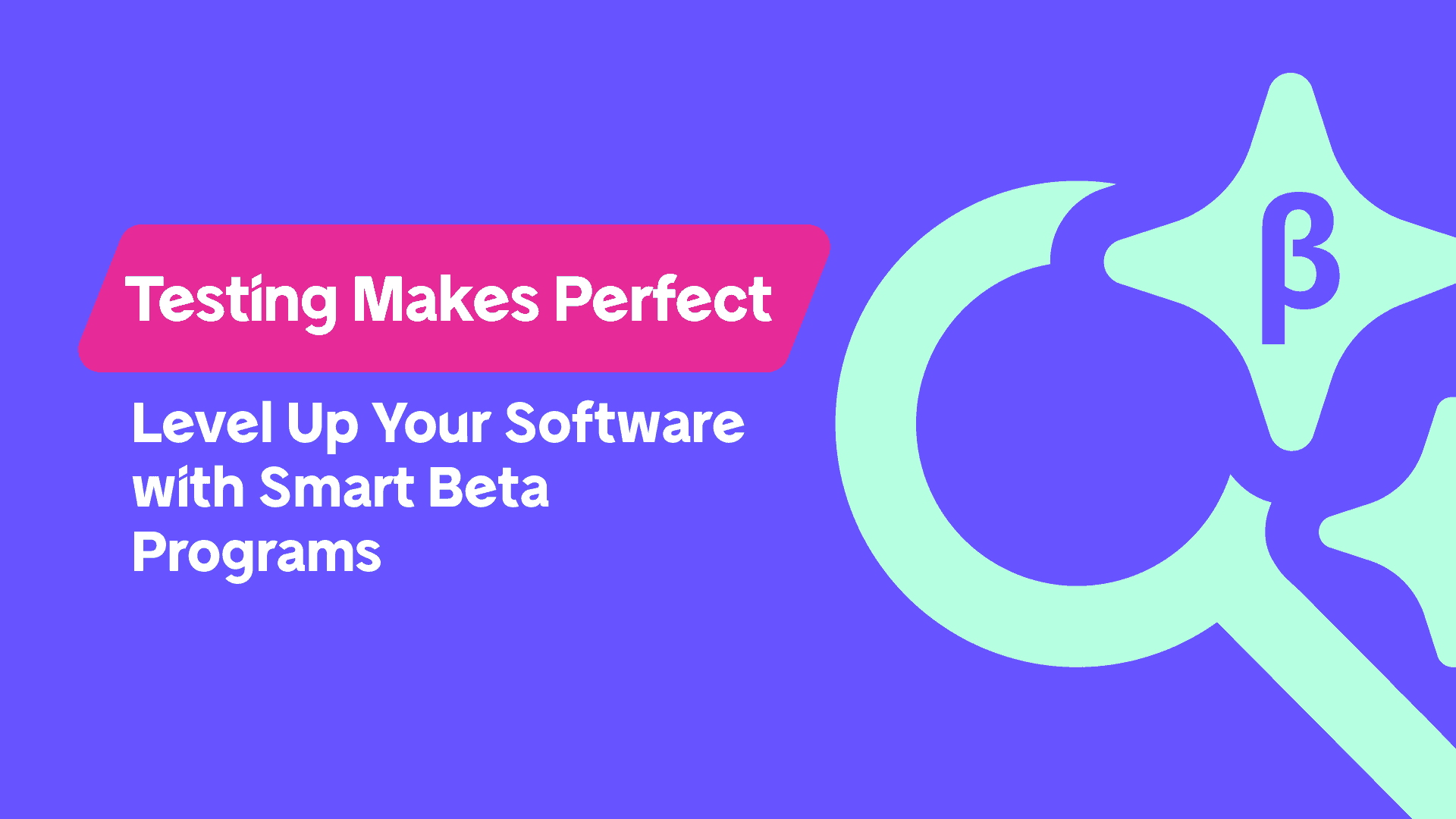The age-old platitude that it’s never too late to learn or start over? It doesn’t get any truer than for Alan Fuller, founder of Fullworks, a successful WordPress plugin company offering solutions for various industries, such as events, security, payments, and more. After getting out of the corporate finance world more than a decade ago, Alan navigated the waters of change for many years before finding a niche in plugin development.
And as you’ll find out in the following Success Story, he has no plans of slowing down.
Alan, it’s great to have you with us. You’ve been a Freemius maker since August 2017 and you’ve sold 4200+ licenses with us. We’d like to know a little more about the man behind the scenes.
I’m a little older than many in this sector — I’m a father of two and a grandfather of two. I live in Woking, England, with my wife. I’ve been racing sailing dinghies since my teenage years and I still love doing so, mainly on a local lake. I also enjoy taking gentle strolls in the countryside.

I started as a trainee programmer in 1978 and my career spanned software development roles including coding, project management, and CIO levels, mainly in the financial sector until 2008. After 2008, my web development journey began when I was released from my corporate shackles.
But to be honest, I consider myself a project manager at heart.
No longer a subject to the corporate system meant you were able to pivot to other more fulfilling pursuits. Tell us about this.
My post-2008 journey also came with its fair share of changes in direction. I initially started as a contract project manager. Then, I purchased the stock and website of a sailing parts/chandlery online business. I ran this operation from my garage for a year but couldn’t make a profit.
After that, I teamed up with my son for the business that was to become Fullworks Digital. It started as an Adwords agency called Roibot and I built my first WordPress website as our sales site.
Soon after, we were selling more WordPress sites than AdWords contracts (not many more, but still) and set up websites for local businesses on Multi Site. We renamed our company to ‘Locally’ with a double ‘ll’. We then acquired the domain locally.co.uk, so the name changed again.
My son got bored with website design and we branched out into cloud consultancy and rebranded again to Fullworks — this time picking a generic name as we didn’t want to go through another name change. Despite becoming Google Partners in 2016, my son didn’t want to do technology anymore and exited the company to set up a completely different business.
I was left holding the WordPress business and searching for what I really wanted to do.
Based on the success of Fullworks, I’d like to understand what sparked the ideas for your plugins.
The first plugin that I started selling with Freemius — Display Eventbrite — came from the wilderness year of 2016. I joined a group of business consultants to dabble in that field. They ran free seminars using Eventbrite but had no easy way to add it to their website. So, one afternoon I wrote a widget for Eventbrite. It did the job so, out of generosity, I published it to the WordPress.org repo for free.
I already had several free plugins from our WordPress business years, of which the first was Stop User Enumeration (it’s still free and has 40,000 users). My mindset was that if I built something that was both generic and useful to me, I would publish it on WordPress.org as my way of giving back to the project. I also had a niche real estate commercial plugin and was surprised by how much ‘pocket money’ it made.
My attempt at business consulting went nowhere, but the widget for Eventbrite was getting lots of users on WordPress.org. I thought I could make a go at being a plugin shop and commercialize. The widget for Eventbrite became Display Eventbrite and the commercialization was the catalyst for me selecting Freemius as a platform.

And Quick Event Manager?
Quick Event Manager was a completely different story that took place during my earlier WordPress business years. At that time, I formed a relationship with another WordPress developer through a business forum. He had a small portfolio of freemium plugins that made him some extra money. His enthusiasm for the annuity income of pro plugins was one of the factors that led me to consider starting a plugin business.
He had three plugins: Quick Event Manager, Quick Paypal Payments, and Quick Contact Form. However, he was making all his big money from building custom calculator sliders — like mortgage quotes, for example — for financial institutions.
After seeing my successes with Display Eventbrite, he thought I might like to take on his Quick Events Manager plugin, and he gave me all three of his plugins for free. However, nothing is truly free when it comes to software: the code required lots of attention and still has many new features under development.
And how does this all overlap with the third plugin you use with Freemius — Fullworks Anti Spam?
In 2018, whilst searching for a mission and reflecting on my skills — which are mainly technical with a keen interest in security (Stop User Enumeration, for example) — I started developing Fullworks Security as a premium-only plugin. I didn’t want to be distracted by Display Eventbrite, so I decided to price it out of the market.
I think I was selling it at $14.99, so I increased the price three-fold to something like $49.99, and a surprising thing happened: I sold more, not less! While this was going on, I spent a year writing the best-ever security plugin. I think I had an MVP of twenty-five features: WAFs, block lists, code scans, malicious file detection, anti-spam, and more.
In just over a year I was ready to launch, so I got a new brand and website and pulled the trigger. Just then, I received unwelcome feedback in the form of, why use your security plugin when I can use WordFence? I ran my security plugin on the sixty or so websites I had left from the earlier WordPress business, but with zero sales I decided to mothball it. Over a year of hard coding, but that’s life 🤷
Just after I mothballed it, I got a request from one of my beta testers asking if I could unpack the anti-spam part of the plugin as they had clients that needed it. I had built the anti-spam part to be very effective with Gravity Forms as that was my go-to forms package. So, I re-packaged Fullworks Anti Spam, and I saw an opportunity for a freemium model with the free version just handling comments and the pro version handling Gravity Forms (and more). And so, that is where Fullworks Anti Spam was born.
Can you provide a synopsis of what each product ‘does’ and why you believe they give competitors a run for their money? I’m not asking you to spill all your secrets, of course 😉
Display Eventbrite Events… well, it does what it says on the tin 😅
What makes it the best is that it is the original. It’s also developed constantly due to its larger user base. We get continuous feedback, especially when Eventbrite adds or changes things. And, of course, support is our passion. Today, Display Eventbrite Events is a shortcode with over 80 options and 7 layout designs, at the highest premium level. In beta, we also have an Elementor block and a Gutenberg block.
Quick Event Manager — which will soon be rebranded to Fullworks Event Manager — is really a self-hosted Eventbrite ‘lite’. The original developer built it based on the needs of small clubs and societies. We currently have an ambitious development plan to make it a real replacement for Eventbrite, partly sponsored by an Italian client that runs hybrid virtual and in-person events in Brazil.
Fullworks Anti Spam is just good at what it does: stopping spam. Of course, there are many anti-spam solutions so it is difficult to compete. We’ve analyzed the shortcomings of the major competitors and, in alpha, we have several unique differentiators that we believe will help increase sales. Watch this space…
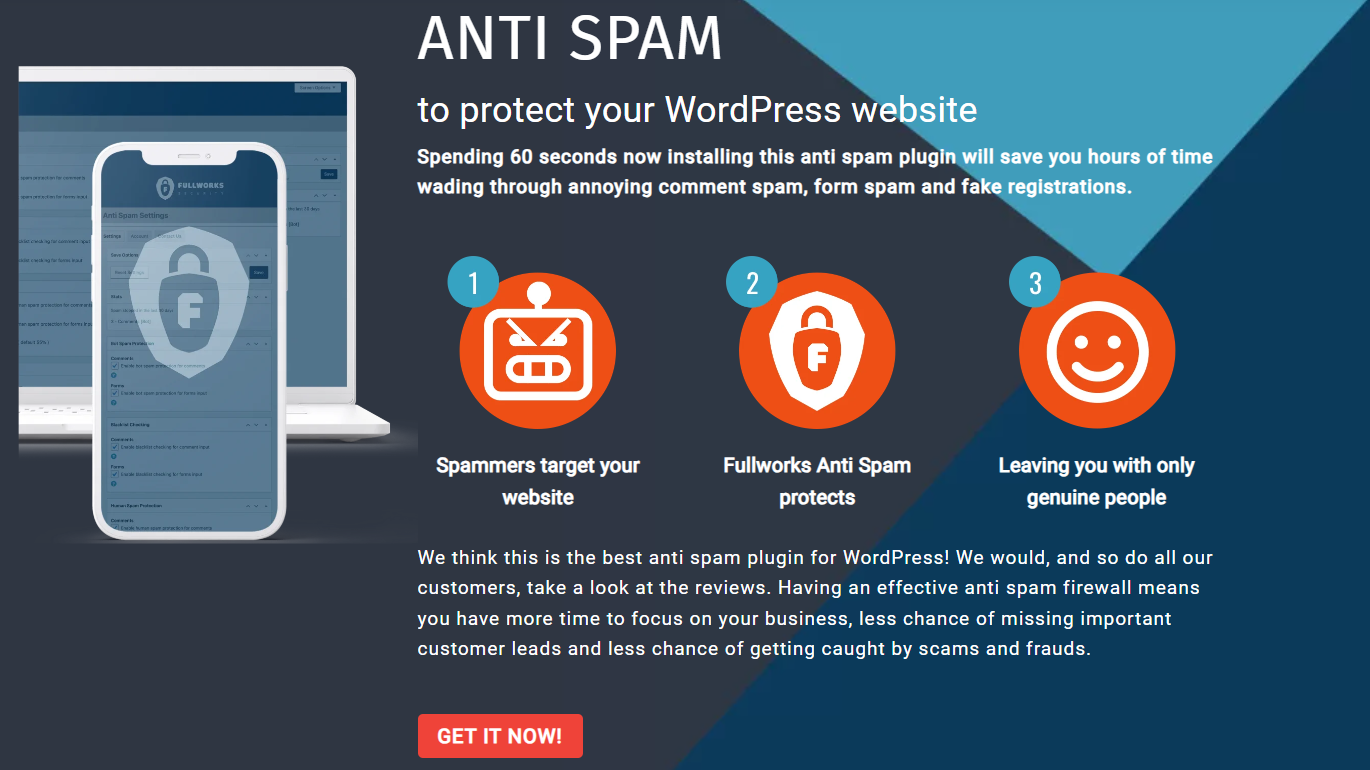
Eventbrite is, of course, quite a well-known company/brand. Is there some kind of partnership or agreement in place between you? What’s the story here?
In the beginning, I reached out to Eventbrite to get permission to use their trademark in the name, which they granted with certain rules. I think I’m the only plugin with this permission, but Eventbrite doesn’t seem to care much about protecting their trademark (unlike — say — Facebook) as I often see it flaunted.
Apart from the special permission, no. Eventbrite used to have their own custom website solution for their special Music Promoters. But when they abandoned that, they got confused and their account managers were recommending clients build WordPress websites and use our plugin, which at the time didn’t have the special features like door opening times that Music Promoters had access to. Of course, we added that and were thankful for all the quality clients Eventbrite sent our way.
It would be nice if they had some form of partnership with us, but in the bigger scheme of things we are not a priority.
You’ve got several other plugins in your arsenal. Did you have a vision for your business and the kind of plugins you were interested in offering, or did it grow organically?
I struggle with visions. But how I ended up where I am has been a bit of an accident and an opportunity, and to some extent, because I built things just because I could.
I actually have 12 plugins; I had 14 until recently, which is way too many.
I do sort of have a strategy, which is based on where I have ended up:
- I primarily focus on two plugins: Fullworks Anti Spam and Events.
- I have designated six of my plugins as leads for Fullworks Anti Spam.
- Events is a combo of Display Eventbrite and Quick/Fullworks Event Manager. At some stage, they may become one (or at least share layout libraries).
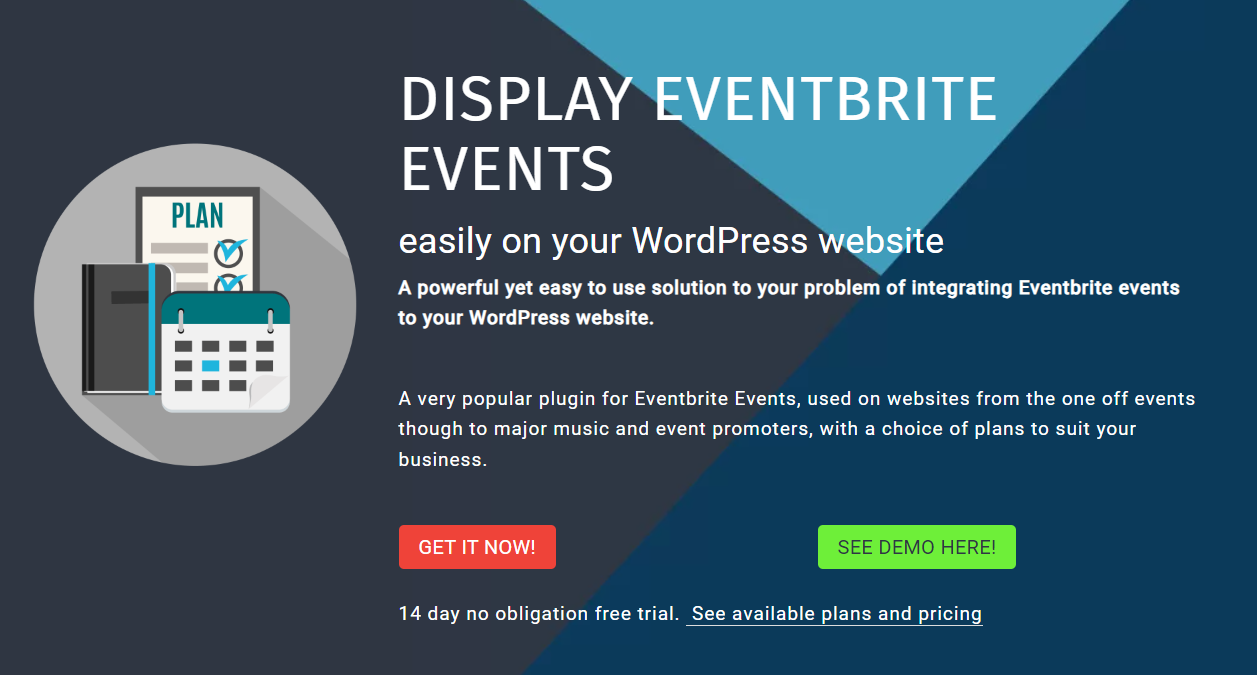
You’re juggling 12 plugins! Do you have a team to support you?
In my career, I’ve managed teams of over 100 developers but I don’t have a desire to do it anymore. So, my strategy has always been ‘me’ and to call in outsourced resources from time to time.
However, about 18 months ago I took on a fractional support person for a year as support was starting to stress me. I paused that for 6 months and took it back myself. Even so, as I have so much to do and not enough time, I’ve recently taken on a new fractional support person and a fractional developer and they are both working out well. Perhaps I will have more time to grow the business now 🤷
Based on your website, you do have a dedicated office space, but you’ve stated you don’t have a team… What gives 😅?
The image you see of me on the website was deliberate to give the impression of a stable business. This was when I was trying to establish Fullworks Security Plugin. I thought a real office space would be good.
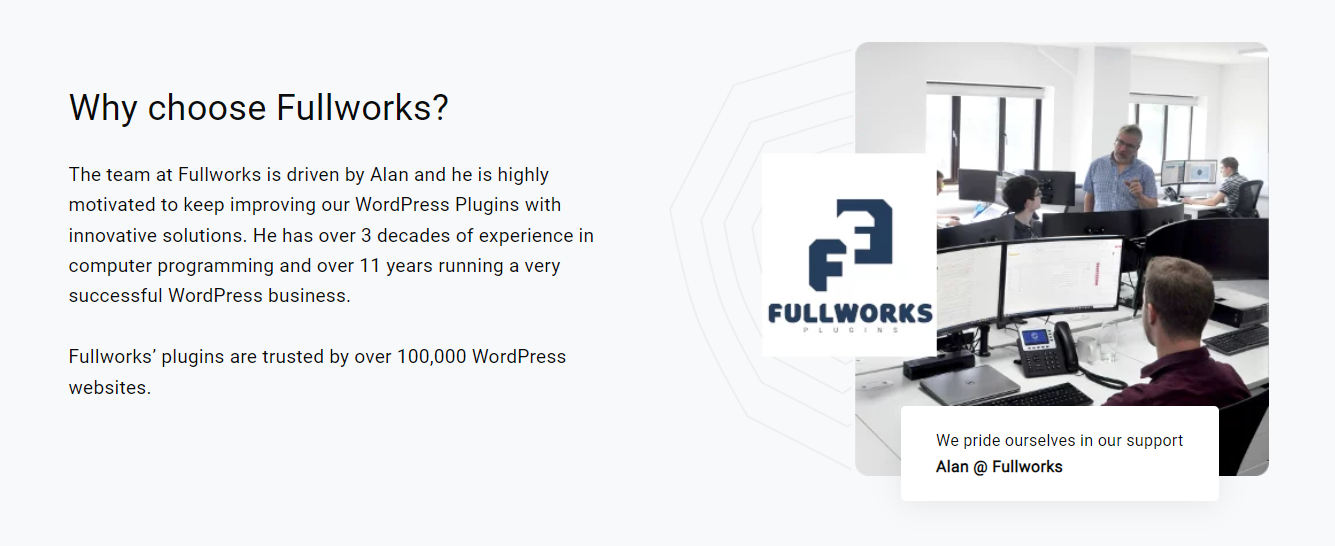
The image 👀
A good friend and client of mine had an Information Security business and the image was taken in his office. It’s not a lie as such as I have worked there and worked with them — it’s just a bit deceptive, perhaps 😅
When my son and I were in a WordPress business, we first worked in the garden office and then moved to Woking into a dedicated shared co-working space. When it became just me, I moved back into the house and worked from a bedroom that was set up as an office.
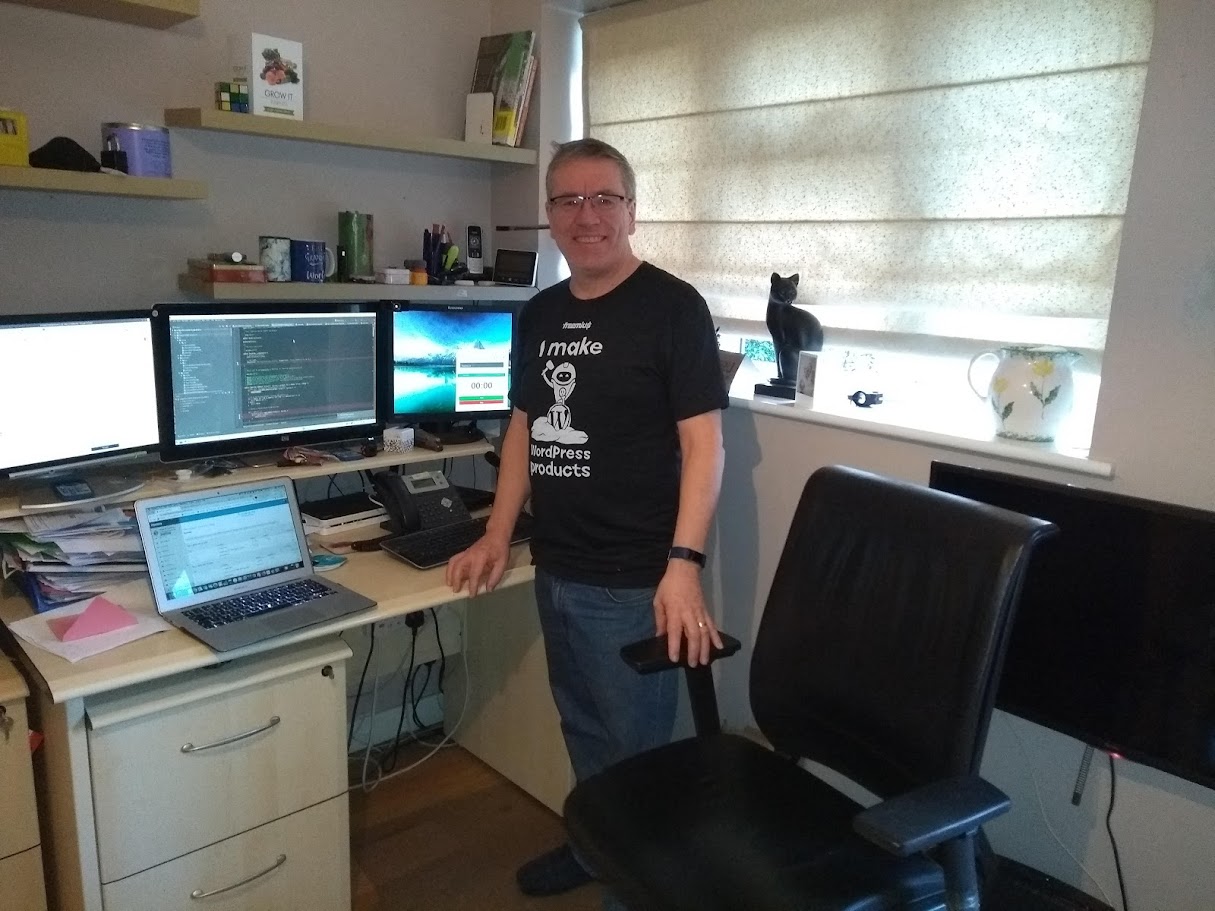
All my ‘outsourced’ or ‘fractional’ staff have been remote. My fractionals work fixed hours every day and we use Slack for our informal communication. I’m not sure what the culture is based on, but if I had to clarify, it would be flexibility and responsibility.
I’m not a table-tennis-in-the-office, fun sort of guy: I’m too intense.
You’ve been with Freemius since August 2017 — you’re one of the OGs! We’d love to explore your journey with us and how your own business has grown along with our offering.
My first commercial plugin was a file format converter for real estate. It was particular to the UK and was a side effort from our web design business. When I discovered the demand and customers were coming to me just via organic traffic, I started selling the plugin via WooCommerce with no license. I avoided European VAT issues by selling to UK customers only.
When I decided to change to a product/plugin business, I knew I needed a licensing and distribution platform that handled the complex European VAT models. The go-to platform was Easy Digital Downloads. Back then, WooCommerce wasn’t as extendable as it is today, so I spent a good deal of effort doing a proof of concept with EDD. It isn’t that easy when it comes to integrating licensing, but I got a proof of concept working.
I was bouncing ideas around Slack (it may have been Genesis Slack as I was quite into Genesis when we were building sites) and Freemius was mentioned as an alternative.
I took a look and liked what I saw. The revenue share model meant I could set up and test a proof of concept without buying hefty licenses. I also liked the free version generator concept and that all the taxes were handled. Integrating licensing was a breeze, and I didn’t have to design and build all the upsell.
It was so easy to launch with Freemius, so I did. In the back of my mind, there would be a break-even point when sales grew to a level where I could move back to a self-managed EDD process. I’m way past that break-even point and while I think about it now and then — as any business owner should — the benefits of an outsourced platform like Freemius far outweigh a straight financial calculation.
We love to hear it! Display Eventbrite has 3000+ active installations on WP.org with a 5-star rating 🌟 What’s contributed most to your flagship product’s success?
Support! Simple as that. I really care about support.
I’m intimately involved with support, so I’m in contact with all of my customers. I listen to what they want and I roll that back into the product.
Personal and professional challenges are part and parcel of growing a business to success. Let’s explore the obstacles you’ve faced.
Now that is a long (and possibly) boring topic 😂
At a personal level, I’m a techy, so I like to roll my sleeves up and get into the code. But that’s actually a challenge for me because my brain is so full of legacy programming language and code.
New options come up and I have to get into them and that fills my head with more junk. I wonder how many plugin business owners have written a label printing app in GoLang or a system to control their domestic heating based on real-time energy feeds in Node.js as a hobby!
And, on top of everything, I also have to learn REACT for WordPress now.
In terms of business challenges, I only really have one: marketing. It’s not one of my skills. But because I’m bootstrapping I don’t feel comfortable outsourcing marketing, and when I have tried, the returns have not been good.
That being said, what marketing techniques and strategies have you used for your business? What worked (if anything) and what didn’t?
This I find tough.
I think that because I’m techy, SEO is my go-to marketing, both on the WordPress.org pages and on my own. I wouldn’t say I’m great at SEO, but then I’ve also been at it long enough to know a bit about what I’m doing.
I originally ran a Google AdWords agency, so I have tried PPC. But then again, we would advise clients to have a big budget to optimize a campaign. I don’t think I want to risk the size of the budget I’d need to make an impact in the plugins world via PPC.
I’ve spent a lot of time on social media such as Facebook groups helping out. While it was fun, I don’t think the real returns were there for me when I was that involved. I tried outsourcing social media marketing but, to be frank, the people I outsourced to didn’t know my products so they produced rubbish.
Black Friday? For me, a waste of effort.
So overall, in terms of marketing, I’m not very good at it and what I try doesn’t seem to work 🤔
A go-getter plugin dev is interested in starting their own company. What’s your best advice for them?
Everyone is different and has different motivations and methods. It is possible to start a plugin business without any knowledge of the technology. You can go in as a great business person with a big budget, a risk appetite, and the ability to hire great people.
I’m risk-averse, and so I choose to bootstrap and that probably holds me back the most. But even then, my business is built on a series of failures.
So my advice is, if you want to do it, just do it, but expect there to be many failures along the way. Learn from those failures and make sure you’re comfortable with the potential scale of failure.
On the technical side: tell us about your dev environment and the tools/devices that supercharge your work day.
My IDE is Jetbrain’s PHPStorm. Freemius’s founder and CEO Vova Feldman introduced me to PHPStorm back in 2017 when I was lucky enough to work directly with him debugging a small issue in the SDK.
I now also use Jetbrain’s Youtrack both as a help desk (I used to use FreshDesk) and an issue tracker (I used Jira before) as I now have a fully integrated platform.
I also fully embrace AI in a dev environment. You can’t trust AI-written code (yet) as there are too many mistakes. But if you know what you’re looking for, it’s much faster getting to the root of an issue than using Google’s general search. AI can also help you save on typing — I use Jetbrain’s AI Assistant and GitHub’s CoPilot, both integrated into PHPStorm.
I use Linux as my development environment. It makes sense to me to build software to run on Linux servers. Linux runs fast — especially Docker. I run all my dev-test environments in Docker and I’ve built a few scripts to quickly build a new test environment.
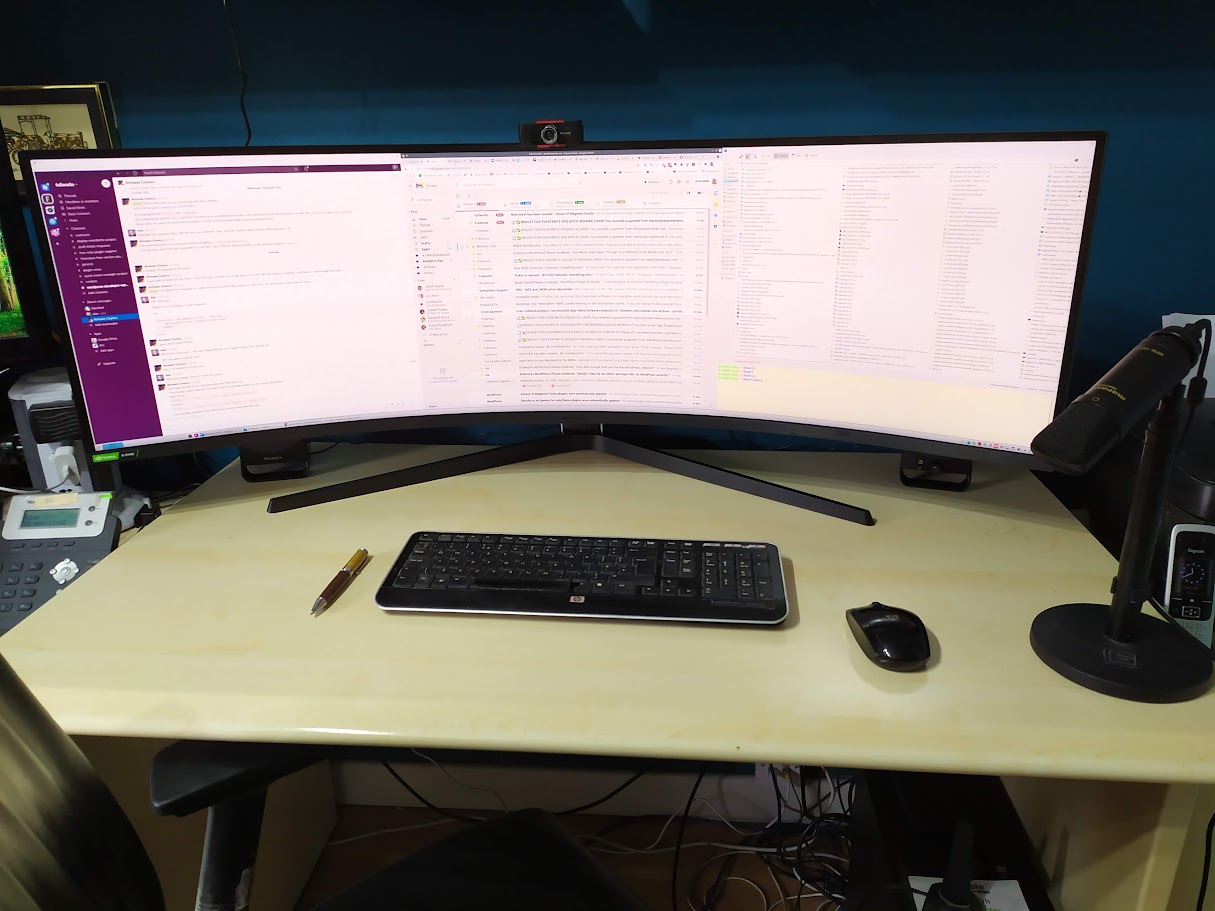
- My current go-to distro is KDE Neon.
- My desktop is an AMD Ryzen 9,32 GB ‘cube’ (about 4 inches square) and a 49-inch curved monitor.
- My laptop is a Slimbook Ryzen 7 with 32 GB.
- Source control is, of course, Git, and I use GitHub for repositories.
- Slack is the communication channel for the team.
That’s an awesome-looking setup! Moving on from ‘geek chic’, please tell us about your favorite Freemius features.
- Not worrying about global tax rules.
- The ability to build WordPress.org-compliant free versions from one code line.
- The built-in upsell checkout features.
- The dashboard because it helps you see sales analytics and look at and compare periods. Once you have several years’ worth of data, this becomes very useful.
We’re eager to show our readers that good things happen to those who decide to stick with Freemius 😉 How has Freemius helped you grow your products?
This is a difficult question because I now think of Freemius as part of the business.
It is the part that handles licenses, collects payments, distributes software, helps me upsell, deals with global taxes, and provides me with information.
I can only guess what life would be like without Freemius, and that would be me spending more time on that stuff and less on what I love: coding and supporting.
Are you willing to talk about how Freemius has impacted your products’ revenue?
I’m not sure how much I can attribute to Freemius, and being an analytical type of person I can’t make stuff up either. But Freemius has definitely had an impact.
I just looked at the MRR all-time chart and the growth is a lot — steady, but a lot.
You stated that you pride yourself on support. What has your experience of Freemius’s support been?
As you know, I’ve been with Freemius a while, so I know a lot and I’m techy so I can work things out myself.
But now and then, I do need help. I will often go to the Freemius Slack and ask there first (unless it’s client-specific). As for non-urgent things, I like to respect direct support resources, but when I do need direct support it’s first class.
A genie grants you the opportunity to travel back in time and tell younger you (who’s just starting the business) three things to do differently. What are they?
Take more risks.
Take more risks.
Take more risks.
On that note: Any advice for newcomers?
Understand your risk appetite.
Choose great people to help you.
Subscribe and grab a free copy of our WordPress Plugin Business Book
Exactly how to create a prosperous WordPress plugin business in the subscription economy.

Can you clue us in on any future plans for Fullworks and your products? How about plans for yourself?
I mentioned my strategy earlier on:
- Continue to push Fullworks Anti Spam.
- Work on the vision to merge Display EventBrite and Quick Event Manager into Fullworks Event Manager.
- Drop a couple of plugins that have no place in my stable.
I’m getting older, and life is short so I plan to do more traveling with my wife. But for the moment with my team in place, that means no change for the business. I don’t have any firm retirement plans but that time will inevitably come and then some lucky business will be able to buy Fullworks’ plugins and continue what we started.

